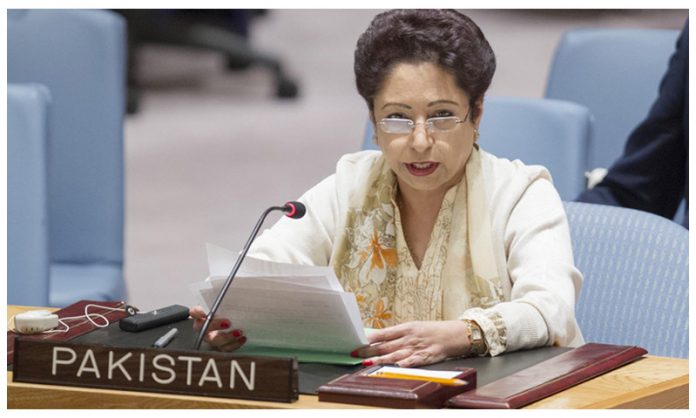
ISLAMABAD: Pakistan has reaffirmed its stand that instead of creating new permanent seats in the UN Security Council, it is best option to increase its non-permanent members.
Talking to delegates at Inter-Governmental Negotiations on reforming the Council, Pakistan’s permanent representative to the UN Maleeha Lodhi said increasing non-permanent seats of the body will make it more democratic.
Describing democracy as the overarching 21st century reality, Maleeha Lodhi told the United Nations that this principle should determine reform of the Security Council, says a press release received here Wednesday from New York.
Dr. Maleeha Lodhi said that there was a global consensus on the values of democracy, equal opportunity and non-discrimination and these ideals should be central to discussions of reform of the Council.
In an indirect reference to the G4 countries (Brazil, Japan, Germany and India) who seek permanent seats, she rejected proposals that she said “strike at the heart of democracy, representation and sovereign equality of States, principles enshrined in the UN Charter.”
In her statement, Ambassador Lodhi argued that any expansion of the unelected or permanent, category of seats would not make the Security Council more democratic and representative.
She said that the only acceptable democratic method for political representation known to the modern era is periodic elections on a fixed tenure of term.
Pakistan, she said, believe that the best, and the only way, to accommodate legitimate regional and political aspirations, is to enlarge the Council in the non-permanent category. “This not only allows more countries from respective regions to serve on the Council but also affords space to work out rotation of seats among cross-regional groups, such as the OIC and the Arab Group”, she added.
Ambassador Lodhi argued that regional representation, based on periodic elections and equitable geographic distribution, can only be enhanced by adding more elected seats. Any additional permanent seat, she said, will benefit one country at the cost of equal and fair opportunity for all the countries of a region.
Remarking that no position on restructuring the Council has so far been able to garner necessary support, Ambassador Lodhi called for flexibility and compromise to make any progress.
While the argument that the “realities of the twenty first century” justified expansion in the un-elected category of seats was “worth considering,” the Pakistani envoy said this was precisely why the Security Council needed to be enlarged in the elected category.
“Will a Council expanded in the permanent category be adaptable to a changing global scenario?,” she asked, while stressing that any amendment to the U.N. Charter was a complicated process.
Ambassador Lodhi said the key issue of veto also needed to address as it has a critical bearing on the effectiveness, transparency and accountability of the Security Council. She said that if today the Council remains paralyzed to accommodate the interests of the five permanent members, how would it cope with the interest of more such members and still be effective? “Merely possessing veto power, even without its use, has a telling impact on the Council’s working methods”, she added.




